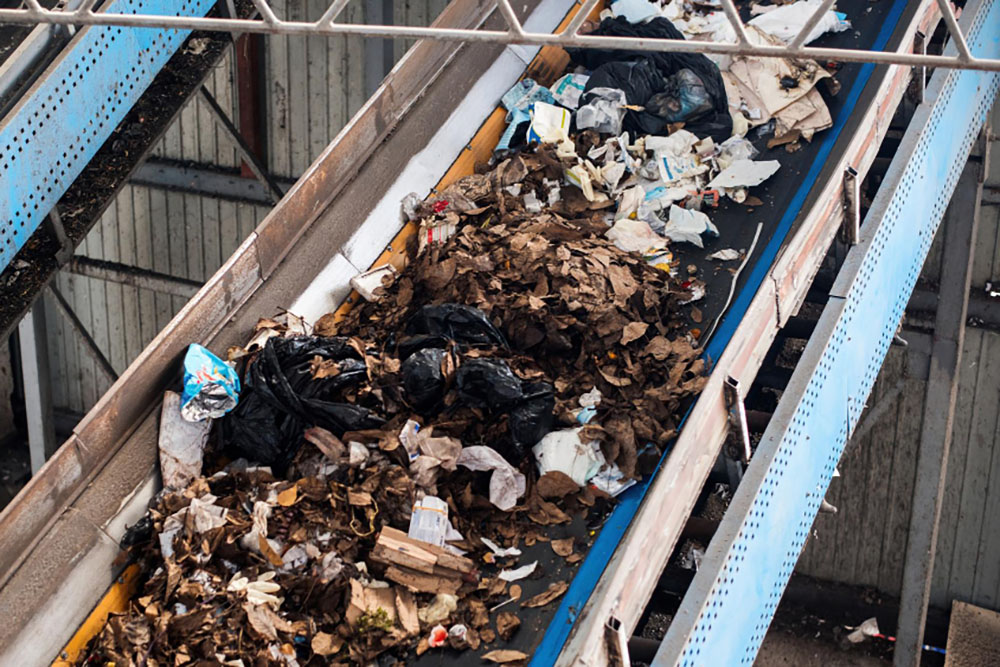
The manufacturing industry is a significant contributor to waste production, particularly plastic waste. With environmental concerns on the rise and regulatory pressures mounting, manufacturers are more compelled than ever to adopt sustainable practices. If you're involved in manufacturing and are considering plastic recycling in New Jersey, it’s crucial to understand the benefits and strategies available. This blog will explore methods to reduce manufacturing waste, focusing on plastic recycling, and how businesses in New Jersey can take actionable steps toward sustainability with the help of All County Recycling.
Plastic waste has long been a problem, polluting ecosystems and harming wildlife. By reducing manufacturing waste, companies can significantly lessen their environmental footprint. This not only helps protect natural habitats but also contributes to a healthier planet for future generations.
Increasingly, governments are implementing stricter regulations on waste management. In New Jersey, there are specific guidelines that manufacturers must adhere to. Failure to comply can result in hefty fines and legal repercussions. Adopting effective waste reduction strategies ensures compliance and avoids these potential pitfalls.
Reducing waste can lead to substantial cost savings. Efficient waste management practices decrease the amount of waste needing disposal and can even turn waste into a resource. For instance, recycled plastic can be repurposed, reducing the need to purchase new raw materials.
Plastic recycling in New Jersey involves collecting plastic waste and processing it into reusable materials. This can include varying types of plastics, from packaging materials to industrial plastics used in the manufacturing process. The end goal is to create a closed-loop system where plastics are continually repurposed, reducing the need for new plastic production.
Recycling plastic can lead to significant cost reductions in raw material expenses. By reusing existing plastics, manufacturers can cut down on the need to purchase new, virgin plastics.
The process of recycling plastic typically consumes less energy compared to producing new plastic from raw materials. This not only lowers energy costs but also reduces greenhouse gas emissions.
Companies that prioritize sustainability are often viewed more favorably by consumers. Demonstrating a commitment to reducing waste and recycling can enhance brand reputation and attract eco-conscious customers.
Conducting a waste audit is the first step in understanding where waste is generated in the manufacturing process. This involves assessing all stages of production to identify areas where waste reduction can be implemented.
Setting up a comprehensive recycling program within the manufacturing facility is crucial. This includes providing appropriate bins for plastic waste, training staff on recycling procedures, and partnering with a reliable recycling service, like All County Recycling, to manage the waste.
Lean manufacturing principles focus on minimizing waste without sacrificing productivity. Techniques such as just-in-time production and continuous improvement can help identify and eliminate waste across the manufacturing process.
Rather than disposing of manufacturing waste, explore ways to repurpose it. For example, plastic scraps can be melted down and molded into new products, creating a circular lifecycle for materials.
Collaborating with experts in waste management and recycling can provide valuable insights and resources. All County Recycling offers specialized services in plastic recycling in New Jersey, helping manufacturers develop effective waste reduction strategies.
The first step is to conduct a thorough assessment of the plastic waste generated in your manufacturing process. This involves identifying the types and quantities of plastic waste produced.
Based on the assessment, develop a comprehensive recycling plan. This should outline the collection, sorting, and processing of plastic waste. It's essential to tailor the plan to the specific needs of your manufacturing facility.
Engage with All County Recycling to leverage their expertise in plastic recycling. They offer a range of services, including waste audits, customized recycling programs, and ongoing support to ensure your recycling efforts are effective and compliant with local regulations.
Education and training are critical components of a successful recycling program. Ensure all staff members understand the importance of recycling and are trained in proper waste management practices.
Regularly monitor the effectiveness of your recycling program and seek continuous improvement. This involves tracking the amount of waste recycled and making adjustments as necessary to enhance efficiency.
Most types of plastics used in manufacturing can be recycled, including PET, HDPE, PVC, LDPE, PP, and PS. It's essential to sort and clean the plastics properly to ensure efficient recycling.
The cost varies depending on the size of your manufacturing facility and the volume of waste produced. However, the long-term savings and benefits often outweigh the initial investment.
While not all forms of plastic recycling are mandatory, New Jersey has regulations in place that encourage businesses to adopt recycling practices. Compliance with these regulations can also provide financial incentives and avoid penalties.
Yes, All County Recycling is equipped to manage large volumes of plastic waste, providing comprehensive services to meet the needs of manufacturing facilities of all sizes.
Regular monitoring, staff training, and collaboration with recycling experts are key to ensuring the effectiveness of your recycling program. Continuous improvement and adaptation to changing regulations and technologies will also enhance your program's success.
By following the steps outlined in this blog and engaging with All County Recycling, you can make significant strides in reducing manufacturing waste and promoting sustainability in your operations.
Reducing manufacturing waste through plastic recycling is not only beneficial for the environment but also offers significant cost savings and compliance with regulations. By implementing effective waste reduction strategies and partnering with experts like All County Recycling, manufacturers in New Jersey can take meaningful steps towards sustainability.
Ready to make a change? Contact All County Recycling today for a free consultation and discover how our plastic recycling services can benefit your manufacturing operations.